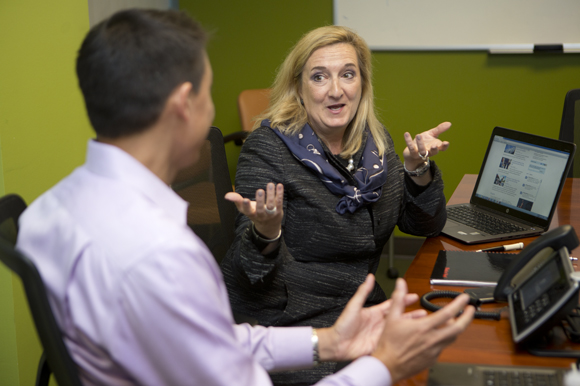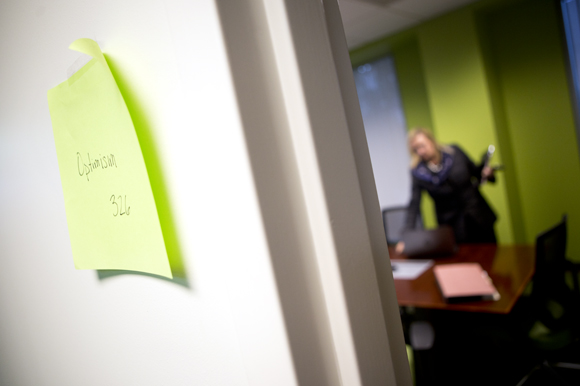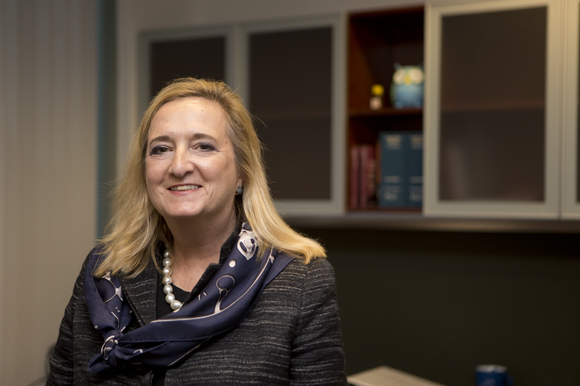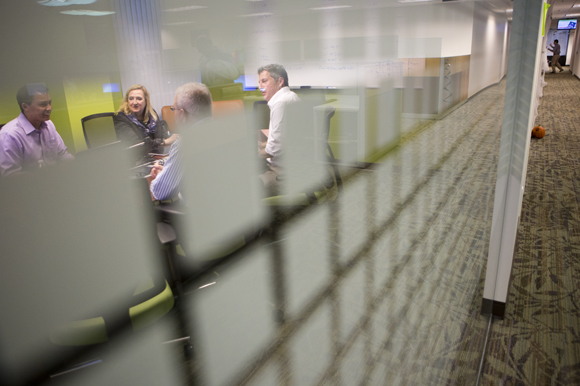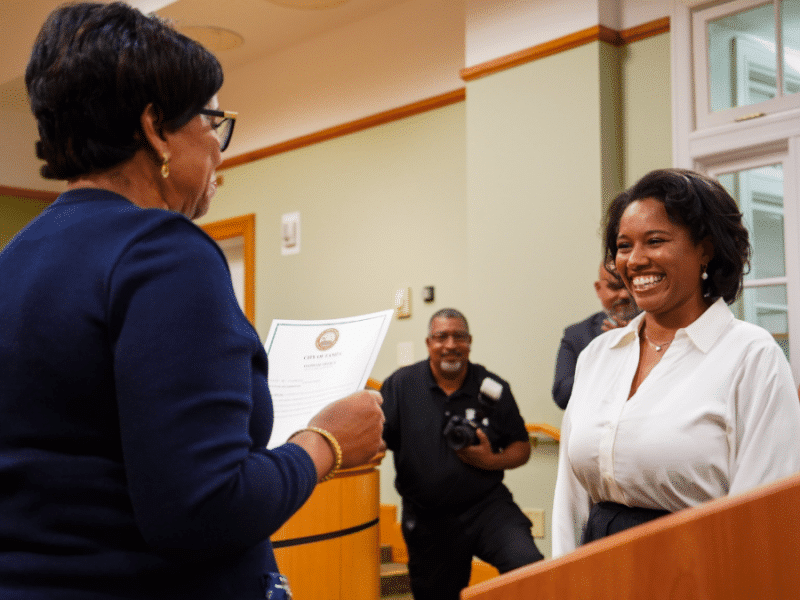Inside Florida business: Smart corporate leaders value women as board members
A panel discussion at the Tampa Club tackles “Women on Boards: Actionable Strategies to Increase Gender Diversity in the Boardroom.” The event is sponsored by Women Executive Leadership and the 2020 Women on Boards Initiative in partnership with the USF Women in Leadership and Philanthropy and the Hillsborough County Commission on the Status of Women.
Eileen Kamerick knows there is gender inequity when it comes to women serving on corporate boards.
It’s especially true in Florida, where she makes her home.
According to the Florida Census of Women Directors and Executive Officers for 2014, women board members comprise only 11.8 percent on Florida’s top 100 companies.
That number lags behind the national trend, where females represent 19 percent of board membership on the S&P 500 companies and Fortune 500 companies.
The census was assembled by the nonprofit Women Executive Leadership, in collaboration with Holland & Knight and the 2020 Women on Boards, a national initiative that seeks to increase women on U.S. boards 20 percent or greater by the year 2020.
Kamerick, the CFO and executive VP of ConnectWise, Inc., a software and services company based in Tampa, stays focused on what is possible, rather than letting the odds discourage her. She serves on not one, not two, but three corporate boards – for Legg Mason Closed End Mutual Funds, Associated Banc Corp. and Westell Technologies Inc.
And these are not appointments meant to fill a quota to appease stockholders who demand diversity. On all three, she plays a pivotal role, chairing the audit committees.
“There are opportunities out there for women. Boards need to staff their committees, so the key is to develop the skill sets that they need,” says the St. Petersburg resident. “And women have to be proactive to make it happen.”
Developing valuable skill sets
Some of the in-demand specialties that boards now seek: Human resources, risk management, cyber security, finance and digital technology. Even having expertise in social media is becoming a go-to asset.
Kamerick’s educational background and work experience certainly made her a valuable player in the corporate ranks.
She holds a law degree and a master’s in finance and international business from the University of Chicago. After five years working in mergers and acquisitions law, she transitioned to the corporate world, where her skills in finance gave her a head’s up in a world once dominated by males.
Those skills opened doors to being sought after as a board member. And ultimately, she believes that board experience led to the CFO position she now holds.
“It gives you credibility in the corporate world,” Kamerick says. “Yes, it’s a time commitment, one you have to take very seriously, but what you get back is 10-fold.
“You get the opportunity to provide input, judgment and wisdom in helping a company succeed. And there’s the camaraderie you get from being part of a team. It’s intellectually challenging and stimulating.
It’s given me enormous satisfaction.”
Following the money
It’s also financially rewarding. According to a report in Bizwomen, board directors on public companies can make anywhere from $150,000 to $400,000 — which can be a combination of salary and stock. That responsibility comes with regularly scheduled meetings each quarter and emergency consults in the case of a change of leadership or acquisition.
The business world needs more women like Kamerick. It’s not only a reflection of society — women make up more than 50 percent of the population — but it also addresses the reality that women drive more than two-thirds of the economic decisions in this country.
What are ways to increase diversity and to accelerate the process? That will be the focus of a panel discussion set for 6-8 p.m. on Nov. 19 at The Tampa Club, 101 E. Kennedy Blvd., Tampa.
“Women on Boards: Actionable Strategies to Increase Gender Diversity in the Boardroom” is sponsored by Women Executive Leadership and the 2020 Women on Boards Initiative. The event is held in partnership with the USF Women in Leadership and Philanthropy and the Hillsborough County Commission on the Status of Women.
Panelists include: Carolyn Chin, CEO of Cebiz, and Florida president of the National Associations of Corporate Directors; Jane Finley, a board member of Publix and the Tampa chapter president of Women Corporate Directors; Cynthia McCague, board member of Pier 1 Imports; and Marlene Spalten, president and CEO of the Community Foundation of Tampa Bay.
Cost is $20 for WEL and USF WLP members and $40 for others. Follow this link for registration information, and for inquiries, call (813) 994-0107 or email at this link.
Moving toward equality
Program director Katherine Young, managing partner and president of Young Search Partners LLC in Tampa, acknowledges while good progress has been made in gender diversity on boards, there is still plenty more work to be done. That’s why the efforts of organizations like WEL are so necessary.
Having more women in the boardroom is “best for business.” It also is a response to what shareholders are demanding.
“It’s not about gender as it is about finding the best talent, knowledge and skill set,” Young says. “Women with those qualities are out there and should be included in the mix.”
In a recent news report, women board members offered their advice on getting — and keeping — a board seat. For starters, do your homework and have a clear understanding of where the company is and where it is going. Ask what assets you bring and how you can add value to the boardroom discussion. And remember that the ultimate goal is not to be a buddy of the CEO, but instead to work on behalf of the shareholders.
Why does having more women in positions of leadership and power lead to better results? Because studies consistently show that companies with gender diversity at the board and “C Suite” levels outperform those that don’t. By nature, women are more inquisitive and more prone to details, which leads to more open discussions and asking more questions.
Forging your own path
Maureen Shea, CEO of the Florida-Caribbean division of Right Management, acknowledges that women face additional challenges in the workplace that men typically don’t.
“We don’t always have the same corporate ladder, straight up and down, that men have. As we go in and out of the workforce due to family commitments, we end up taking a more zigzag path,” she says. “There’s a growing acceptance of more flexibility in the workplace. But it’s a cultural change and that takes some time.”
Shea is the program chair for WEL’s south Florida panel discussion, which also takes place Nov. 19 at a luncheon from 11:30 a.m. to 2 p.m. at the Signature Grand in Davie. Similar events will be held around the country in an effort to spark conversation on a national level.
She says one major key for young careerists in breaking ground is to seek out established mentors for advice and support. Those relationships can lead to getting doors opened in the future. As for the mentors, it’s a way to “pay back and pay it forward.”
She also says women seeking to rise in the corporate world have to do what men have done for a long time.
“Don’t be afraid to take risks,” Shea says. “So you may make a mistake and fall flat. Get yourself up and keep moving forward. Build your brand and do the right thing. But never be afraid of being a risk-taker.”

